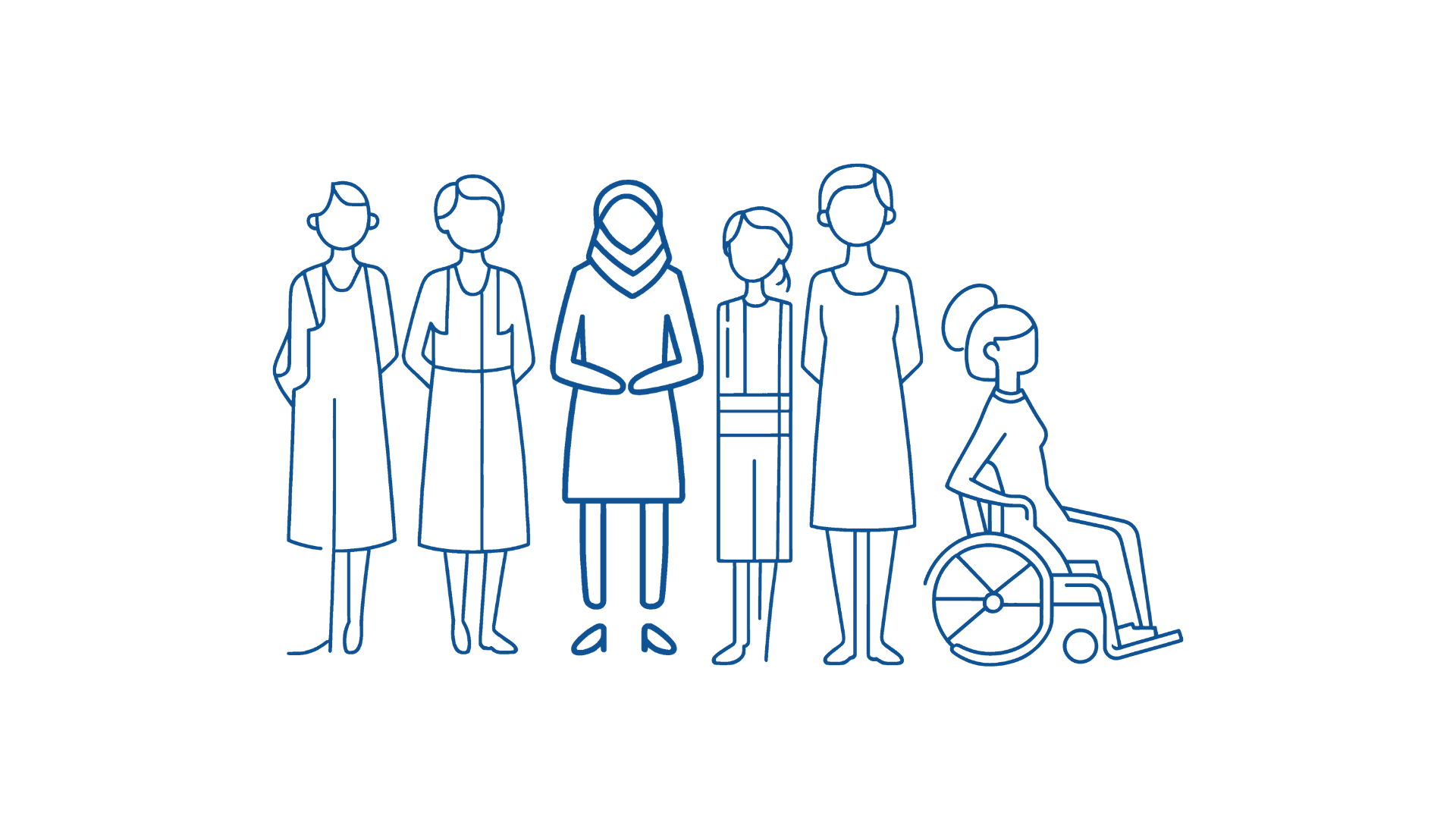Empowerment enables individuals to take control of their own lives while aiming to achieve social equality.
Women’s empowerment, in particular, plays a critical role in reversing the consequences of gender inequality. Key components of this empowerment process include self-worth and awareness, the freedom to make choices, access to opportunities, and the ability and means to influence the direction of social change. By recognizing their own value and realizing their potential, women can transform both their lives and the society they live in.
For a strong society living in health and well-being…
Reproductive health burdens arising from women’s gender are deepened by gender inequality. Throughout the life cycle, girls and women face various challenges that affect their health. Documented and observed issues include preventing the birth of female fetuses, undernutrition of girl infants, and reduced access to healthcare services; child marriage and adolescent pregnancy during puberty; exposure to sexual abuse and violence; lack of access to sanitary pads; and being vulnerable to risks due to the absence of sexual health education. In adulthood, illnesses, disabilities, and deaths occur due to women’s reproductive functions and motherhood. Problems in accessing family planning counseling and methods increase the need for access to elective abortion services, while lack of access to these services causes health risks, including death, resulting from unsafe abortions. Preventable maternal deaths and the failure to diagnose and treat reproductive system cancers early also pose life-threatening risks. It is also observed that violence against women negatively affects women’s health and shortens their healthy life expectancy.
- The empowerment of women is the foundation of women’s health and well-being.
- Knowledge and awareness related to women’s health, and access to preventive services, reduce maternal and infant mortality and risks in the field of women’s health.
- From a preventive healthcare perspective, supporting access to information and services on women’s health issues, safe motherhood, and fertility regulation strengthens both women and society.
- Maternal and infant mortality and morbidity are important indicators of a country’s level of development. Carrying out initiatives to improve women’s health with pregnant and postpartum women and breastfeeding mothers protects maternal and infant health, empowers women, and supports development.
- Especially in disasters and emergencies, where preventive healthcare mechanisms are disrupted, strengthening access to services in the field of women’s health is of vital importance. In such situations, improving access to healthcare services for women, pregnant and postpartum women, and breastfeeding mothers protects and strengthens the health of women, mothers, and infants.

Messages from participants involved in our initiatives supporting access to women’s health services:
”“Everything you described are situations experienced by me, my mother, my aunt, my grandmother, and my paternal grandmother. In fact, my grandmother lost her life during a procedure done to prevent her from having children—exactly due to the kinds of harmful attitudes you mentioned. I wish they had heard what you shared today. Maybe then my grandmother and other women wouldn’t have died simply because of a lack of such basic information. I felt truly saddened and cried. There are so many women like them. I really hope you can bring this education to villages and remote areas as well.”
”“This was both the most informative and the most educational training I have ever received in my life. A training I never wanted to end—one and a half hours a week was simply not enough. I realized how many things we believed to be true were actually wrong. Every woman should receive this kind of training—even before reaching adolescence—where everything they wonder about is explained accurately and free from misconceptions.”
”“I studied at two universities and completed a master’s degree. I’ve researched hundreds of topics in great detail for both my professional and social life. Yet, I suppose there are deeply ingrained inhibitions. I don’t even know why we refrain from exploring these subjects. Through this training, you opened a door to my ‘dark room.’”
”“I learned so many things in this training that I didn’t know before. As I learned more, I started to understand myself better. I learned to listen to the voice of my body. I am truly happy to have completed this training, even with all the misconceptions I thought were true. I believe every woman should receive this training. In fact, even though I’m 24 years old, I feel like I’m already late in receiving it.”
”“In this training, I learned many useful things about myself, my body, and women’s health—things I had never known but absolutely needed to know. I wish I had had the chance to attend earlier. I believe every woman and girl in this country should receive this training. In fact, even men have a lot to learn from it. I truly hope every woman can access this opportunity and raise their awareness about women’s health. I also hope such trainings increase across the country and are offered more frequently, especially in rural areas if necessary.”
